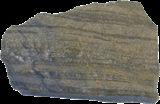
Ore
WordNet
noun
(1) A monetary subunit in Denmark and Norway and Sweden; 100 ore equal 1 krona
(2) A mineral that contains metal that is valuable enough to be mined
WiktionaryText
Etymology
/ . MORPHOLOGY: (The O.E. word,āra, dropped the initial ā-sound, and the remainder, -ra, evolved into a word whose sound [in its past participle form with "-ed"] approached the modern English, "ROT."
Due to the fact that weapons and shallow-hulled water-craft were integral for antiquated, Germanic tribes (Jutes, Angles, Saxons, ...) to defend, and further expand, their territories. Metals also enabled thse tribes to fashion banding and structural reinforcements for their river-penetrating boats, as well as fish hooks, whose designs are unique to each tribe, and thereby enable archaeologists to assign probable, tribal affiliations. Each of these tribes were cognately-named (i.e., ANGLES < "angle [of hook]" + JUTES < "jut (the 'pointing out'...) [of hook]" + SAXONS < Olde English: seax "[sword]."
As of recent times, usage within geologic and -- more saliently -- economic senses, an "ore" is a rock whose intrinsic mineral, or element-al, composition would yield a monetary, or material, value that would exceed those costs accumulated by its evaluation and testing, extraction, and subsequent processing.
Noun
- Rock that contains utilitarian materials; primarily a rock containing metals or gems which -- at the time of the rock's evaluation and proposal for extraction -- are able to be separated from its neighboring minerals and processed at a cost that does not exceed those materials' present-day economic values.
Verb
----

